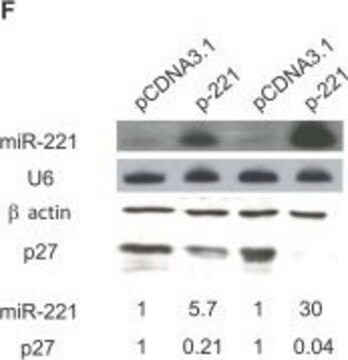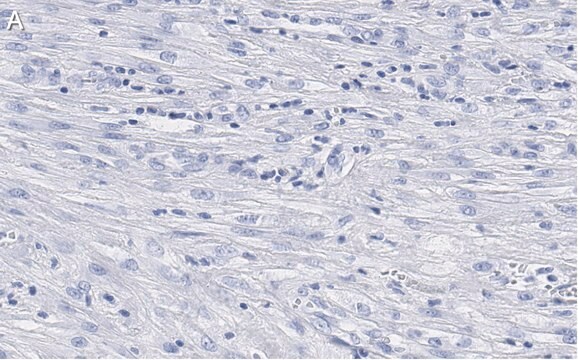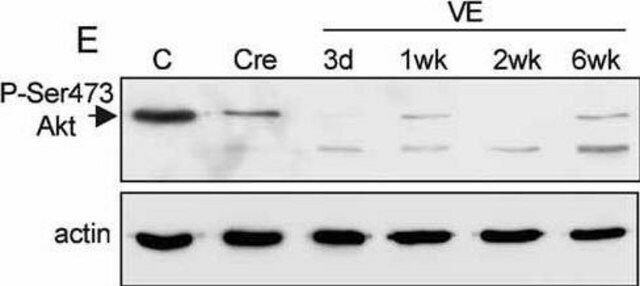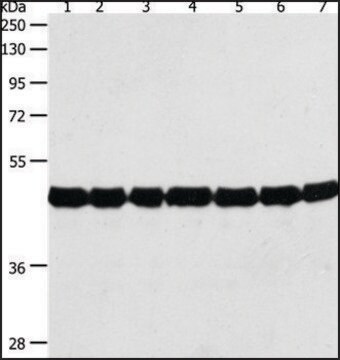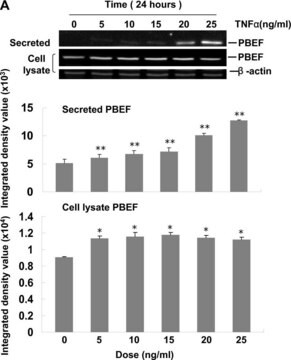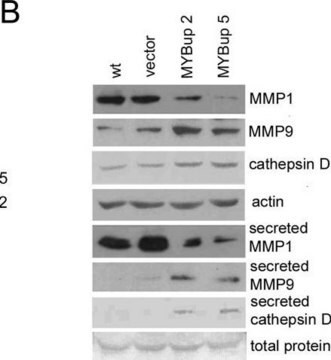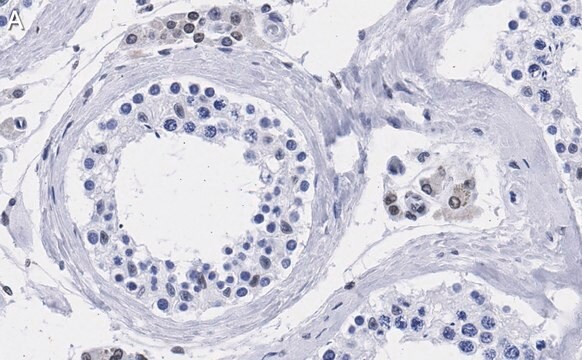ABT1485
Anti-α-Actin-1 (ACTA1) antibody
rabbit polyclonal
Synonym(e):
Actin, alpha skeletal muscle, Alpha-actin-1
About This Item
Empfohlene Produkte
Produktbezeichnung
Anti-Actin, from rabbit, purified by affinity chromatography
Biologische Quelle
rabbit
Qualitätsniveau
Antikörperform
affinity isolated antibody
Antikörper-Produkttyp
primary antibodies
Klon
polyclonal
Aufgereinigt durch
affinity chromatography
Speziesreaktivität
mouse, human
Methode(n)
immunocytochemistry: suitable
immunohistochemistry: suitable (paraffin)
western blot: suitable
NCBI-Hinterlegungsnummer
UniProt-Hinterlegungsnummer
Versandbedingung
ambient
Posttranslationale Modifikation Target
unmodified
Angaben zum Gen
human ... ACTA1(58)
Allgemeine Beschreibung
Spezifität
Immunogen
Anwendung
Zellstruktur
Immunohistochemistry Analysis: A 1:1,000 dilution from a representative lot detected actin in human cardiac muscle, skeletal muscle, and small intestine tissue sections.
This polyclonal antibody is also available as Alexa Fluor™ 488 and Alexa Fluor 647 conjugates (Cat. No. ABT1485-AF488 and ABT1485-AF647) for flow cytometry, immunocytochemistry, immunofluorescence applications.
Qualität
Western Blotting Analysis: A 1:5,000 dilution of this antibody detected actin in 10 µg of human skeletal muscle tissue lysate.
Zielbeschreibung
Physikalische Form
Lagerung und Haltbarkeit
Sonstige Hinweise
Rechtliche Hinweise
Haftungsausschluss
Sie haben nicht das passende Produkt gefunden?
Probieren Sie unser Produkt-Auswahlhilfe. aus.
Lagerklassenschlüssel
12 - Non Combustible Liquids
WGK
WGK 1
Flammpunkt (°F)
Not applicable
Flammpunkt (°C)
Not applicable
Analysenzertifikate (COA)
Suchen Sie nach Analysenzertifikate (COA), indem Sie die Lot-/Chargennummer des Produkts eingeben. Lot- und Chargennummern sind auf dem Produktetikett hinter den Wörtern ‘Lot’ oder ‘Batch’ (Lot oder Charge) zu finden.
Besitzen Sie dieses Produkt bereits?
In der Dokumentenbibliothek finden Sie die Dokumentation zu den Produkten, die Sie kürzlich erworben haben.
Unser Team von Wissenschaftlern verfügt über Erfahrung in allen Forschungsbereichen einschließlich Life Science, Materialwissenschaften, chemischer Synthese, Chromatographie, Analytik und vielen mehr..
Setzen Sie sich mit dem technischen Dienst in Verbindung.